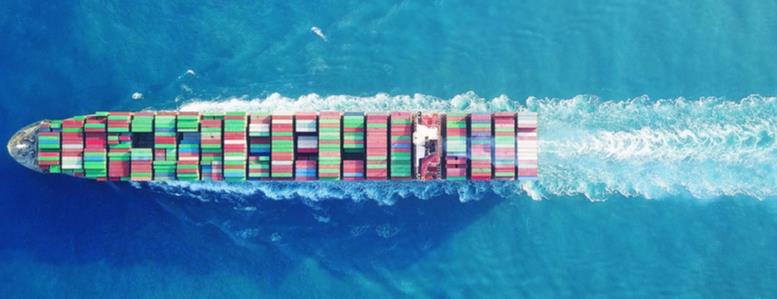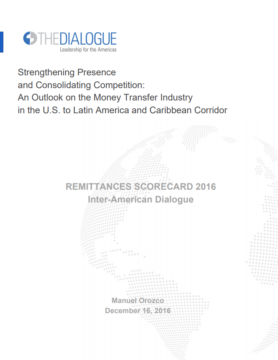Is the Caribbean Community in Danger of Collapsing?
What are Caricom’s greatest achievements? Could closer integration benefit the region and, if so, what steps would have to be taken to achieve it?
A Daily Publication of The Dialogue
The Caribbean is better positioned than any other region in the world to take advantage of the “blue economy,” Valerie Hickey, a practice manager at the World Bank, said this month. The blue economy, which the multilateral lender describes as the sustainable use of ocean resources for economic growth, improved livelihoods and jobs, has only now begun to take hold among countries in the region, she added. What opportunities would a focus on the blue economy bring to the Caribbean, and what are some possible obstacles standing in the way? What else can Caribbean nations do to snap back from recession, both individually and as a region, and what tools are at their disposal to finance their recoveries? How can the region’s countries diversify their economies, and which sectors should they invest in to become more resilient to external factors?
Edmund Bartlett, Jamaica’s tourism minister: “With more than 80 percent of Jamaica’s GDP generated in coastal areas, it is imperative that we safeguard the economic and social value of highly vulnerable coastal communities and coastal infrastructure to support sustainable trade, tourism and development. Jamaica is approximately 10,990 square kilometers, with an exclusive economic zone (EEZ) almost 22 times this size. Our coastline is approximately 1,022 kilometers of an array of ecosystems, including coral reefs, seagrass beds, mangrove forests and wetlands. For this reason, the Jamaican government remains committed to ocean-based solutions for sustainable development benefiting all citizens, in keeping with Sustainable Development Goal 14. As the only developing country host of an international organization—the International Seabed Authority—the sustainable use of marine resources for sustainable development is not a new consideration for Jamaica. These solutions include the conservation of biodiversity with initiatives such as restoration of mangrove forests, seagrass beds and coral reefs, and establishment of fish sanctuaries for resilience of sensitive fisheries. Strong regulatory frameworks and guidelines for coastal development and restoration support these efforts. Engagement with communities and relevant stakeholders for education and empowerment on use of the marine space as well as facilitating market access for their products and services is important. Earlier this year, the new Port Royal Cruise Port welcomed tourists to the historic city for the first time in more than 40 years. Port Royal is a prime location for maritime archeology as a nontraditional tourist offering. Resilient spaces, communities and people are key to the necessary resilience for development.”
Ronald Sanders, ambassador of Antigua and Barbuda to the United States and the Organization of American States: “For Caribbean countries to take advantage of the ‘blue economy,’ the sea making up their exclusive economic zone (EEZ) has to be mapped to determine the resources it has, including minerals. Caribbean countries must also complete maritime boundaries to avoid future conflicts and, at least, preliminary resource-sharing agreements should be reached where resources could overlap. Without knowing what their EEZs have, Caribbean countries cannot seek private-sector partners, whose capital and know-how will be needed. Investors would also be reluctant to invest without clear boundaries. Mapping requires money beyond the region’s capacity. External resources will be necessary. The Caribbean now derives limited benefit from the ‘blue economy,’ particularly in cruise tourism and fisheries. Unequal contracts with major cruise lines, together with rivalry among Caribbean countries, result in the greatest benefits going to the cruise companies. Regarding fisheries, foreign vessels swallow fish from Caribbean waters with impunity. Regional countries lack the power to stop them. The disadvantages in these two areas must be reversed for real benefits to flow to regional states. Caribbean countries should act collectively. Current declines in Caribbean economies, especially the decimation of tourism earnings, is a consequence of the imported effects of the Covid-19 pandemic. Most Caribbean countries have managed the virus effectively with low death rates and moderate numbers of infected persons. Covid-19 is yet another exogenous shock to the region over which it has no control, and there has been a poor response from the international financial institutions and official lenders, such as the Paris Club. Economic diversification and resilience will be prolonged over decades, unless the international community accepts the harmful effects of many of their policies on the region, including barring many regional nations from concessional finance.”
Scott MacDonald, chief economist at Smith’s Research & Gradings and senior associate at the Center for Strategic and International Studies (CSIS): “Covid-19 probably has done more damage to Caribbean economies than a bad hurricane season. Real GDP growth rates, with the exception of Guyana, have plummeted, unemployment has increased, and some governments have gone to the IMF for help. The global pandemic has pointed to weaknesses in many Caribbean economies, in particular the heavy dependence on external factors such as European and North American tourists as well as imported food, medical supplies and other goods. What will it take for the Caribbean to recover? The following are essential: a vaccine, sustainable North American and European economic recoveries and greater diversification of local economies. The last is important. The Caribbean can do more to feed itself (which would help reduce food security worries), deal with climate change challenges (such as rising sea levels and extreme weather events) and find new means of employment. Key to reactivating the Caribbean economy is taking advantage of the blue economy, which promotes generating growth by the sustainable use of the oceans. According to a 2012 report by the World Bank, the estimated gross revenues of ocean use in the Caribbean amounted to at least $407 billion, powered by shipping, mineral resources, tourism and fisheries. The shock from Covid-19 underscores the need for a more unified regional response to develop the blue economy. The Caribbean should more aggressively pursue other options as well—software development, digital assets and pharmaceuticals. In doing so, the Caribbean is well-positioned to take advantage of the decoupling of the U.S. and Chinese economies, which is forcing U.S. multinational companies to look for business locations closer to home. While 2020 will go down as an Annus Horribilis for the Caribbean, 2021 could possibly see the beginning of a more sustainable eco-friendly long-term trend.”
Andrea Ewart, CEO of DevelopTradeLaw: “It makes sense for a region surrounded by water to make sustainable use of those resources for economic growth, improved livelihoods and jobs. However, the challenges facing the Caribbean in taking advantage of the ‘blue economy’ are the same ones it faces in capitalizing on the ‘digital economy,’ or in making other advances away from countries’ reliance on one primary economic driver—tourism or commodities export. The challenges include high levels of debt, high crime rates and high costs of doing business. These impediments coexist with an educated and talented work force, but entrepreneurs are stymied by the inability to access finance or do so only at a very high cost. Yet, with climate change posing an existential threat to the region, preserving the health of the ocean ecosystem is a matter of life and death to the Caribbean. Partnering with funders, the region could position itself as a thought leader on the blue economy. Small grants can support university researchers and innovators working to develop blue economy approaches and technologies, in particular climate change solutions, renewable energy, sustainable fisheries, waste management and efficient maritime transportation. Their small populations could also provide a real-world lab to explore the most promising innovations. Failures would be contained while successes could be scaled up for larger economies. Yes, the region needs to continue to address its systemic and structural deficiencies. However, a focus on the blue economy creates opportunities that could be pursued despite these challenges, perhaps also creating a way forward on post-Covid recovery.”
 The Latin America Advisor features Q&A from leaders in politics, economics, and finance every business day. It is available to members of the Dialogue’s Corporate Program and others by subscription.
The Latin America Advisor features Q&A from leaders in politics, economics, and finance every business day. It is available to members of the Dialogue’s Corporate Program and others by subscription.
What are Caricom’s greatest achievements? Could closer integration benefit the region and, if so, what steps would have to be taken to achieve it?
Given their close proximity to the United States, LAC countries are well-positioned to capitalize on the surplus of US gas exports and current buyer’s market.
In its fourth edition, the Remittances Scorecard ranks 30 companies working in 11 Latin American and Caribbean countries. It evaluates them across 12 indicators to assess their performance and competition in the money transfer industry.
 File Photo: World Bank.
File Photo: World Bank.

